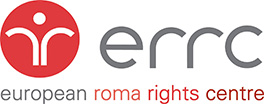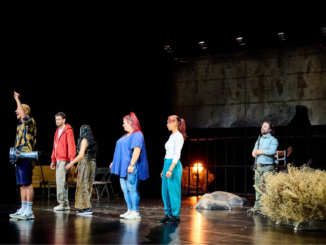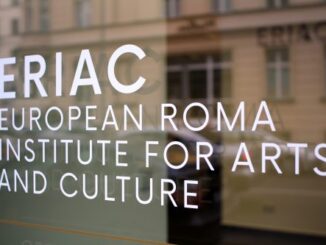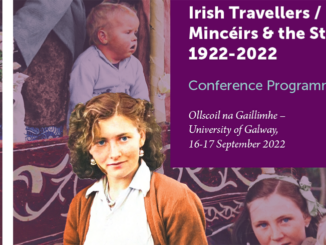
A Romani father and son have won a judgment from the European Court of Human Rights against Slovakia after suffering a violent attack by the police during the first COVID-19 lockdown in April 2020 in Bardejov. The Court found that the violence used by the police officers (which included severely beating the Roma with batons, fracturing the skull of one and concussing the other) was disproportionate, and that the investigation into the police brutality and subsequent legal proceedings were inadequate. Slovakia must pay €16,500 in damages to the two Romani men plus €6,410 in legal expenses. The case was represented by the European Roma Rights Centre (ERRC).
“During the 2020 COVID-19 lockdowns, we saw how police in Europe treat Romani communities when they think no one is watching: with extreme, even sadistic, levels of violence. Without judicial oversight, access for human rights activists, or journalistic scrutiny, the police were free to brutalise and torture Roma with apparent impunity. This judgment is the first challenge to that assumed impunity. It is an important disruptive intervention to their wanton and systemic racist policing” said the spokesperson for the European Roma Rights Centre, Jonathan Lee.
On the evening of 12th April 2020, during the Easter holidays and the first round of COVID-19 restrictions in Slovakia, four police officers from the Emergency Motorized Unit of the Regional Directorate of the Regional Police in Prešov brutally attacked two Romani men, a father and his adult son, in the Poštárka Romani neighbourhood of Bardejov. The son was violently assaulted by three officers for briefly lowering his face mask outdoors due to feeling nauseated. The officers tackled him to the ground unprovoked and used grapples, punches, and kicks while he was defenceless on the floor, with one officer kneeling on him and others hitting his ribs and back. He was handcuffed and dragged to the police car, falling on the floor on the way, and taken to the Circuit Police Department in Bardejov.
On hearing about his son’s violent arrest, the father went to the location where the assault had taken place. There were police officers there, but not his son who had already been arrested. He politely inquired about his son’s whereabouts but received no response. By this time the community had gathered around, and disorder broke out which resulted in throwing of stones towards police officers and their vehicle, sparked by the violent confrontation only moments ago in the street.
Reinforcements were called and 30 police officers, two soldiers, and five police dogs arrived. When they attempted to use their overwhelming force to arrest one person a tussle broke out between the crowd and the police. As the altercation continued, one of the officers lashed out at the Romani father with a metal telescopic baton. According to the statements of several witnesses which are supported by video recordings, the officer knocked the father to the ground and beat him on his torso and head with the baton, fracturing his frontal bone, causing contusions on his brain, and severe bleeding which required hospitalisation. His daughter-in-law asked the police officers to call an ambulance as his head was bleeding profusely. They made no attempt to do so, instead putting him into a grapple in a police car. His daughter-in-law called the ambulance herself, and the medical staff insisted on treating him on-site before he could be taken to the police station. He was later released from custody (during which time he was hospitalised) because the court found his detention to be unlawful. The father was criminally convicted and fined for assaulting an officer. Despite the video evidence of the attack on his son, the police lied and said that he had suffered no injuries.
The subsequent investigation by Slovakia’s Office of Inspection Service was fundamentally flawed and biased. Despite expert medical testimony confirming the father’s injuries were consistent with being struck by a metallic baton, the investigating officer terminated criminal prosecution in February 2021, ruling the police actions were lawful and proportionate. The investigation relied primarily on police officers’ versions of events while dismissing video evidence and several witness testimonies of Roma from the Poštárka community in Bardejov. When the victims complained, citing the investigation’s inadequacy and lack of independence, both the Regional Prosecutor’s Office and Constitutional Court dismissed their complaints, effectively denying them any remedy. The Constitutional Court ruled they had not been victims of rights violations or discrimination, despite the clear evidence of excessive force and the targeting of a Romani community during the arbitrary enforcement of lockdown measures.
The European Court ruled that the Romani men’s right to not be subjected to torture, and inhuman or degrading treatment or punishment (Article 3 of the European Convention on Human Rights) had been violated by the Slovak Police. The Court found their rights were violated substantively (because of the mistreatment they suffered), and procedurally (because of the ineffective investigation into the police brutality). The Court ordered Slovakia to pay €6,500 to the son and €10,000 to the father, plus any taxes, in damages. A further €6,410 (plus taxes) must also be paid to cover legal costs and expenses. This money will go towards representing future cases brought on behalf of Romani communities in Europe.
The case was represented at a domestic level by the ERRC’s legal consultant, Michal Zálešák.
A report covering the extent of human rights violations against Roma in Europe during the COVID-19 lockdowns of 2020 is available here.
This press release is also available in Slovak.
redaktionen@dikko.nu
Att vara en oberoende tidning kostar pengar därför använder vi oss av crowdfunding. Det innebär att människor med små eller stora summor hjälper till att finansiera vår verksamhet. Magasin DIKKOs insamlingen sker via swish: 123 242 83 40 eller bg: 5534-0046
Vill du annonsera eller sponsra, synas eller höras i våra media?
Kontakta oss på redaktionen@dikko.nu
eller ring 0768 44 51 61
IBAN: SE19 9500 0099 6042 1813 4395
BIC: NDEASESS




